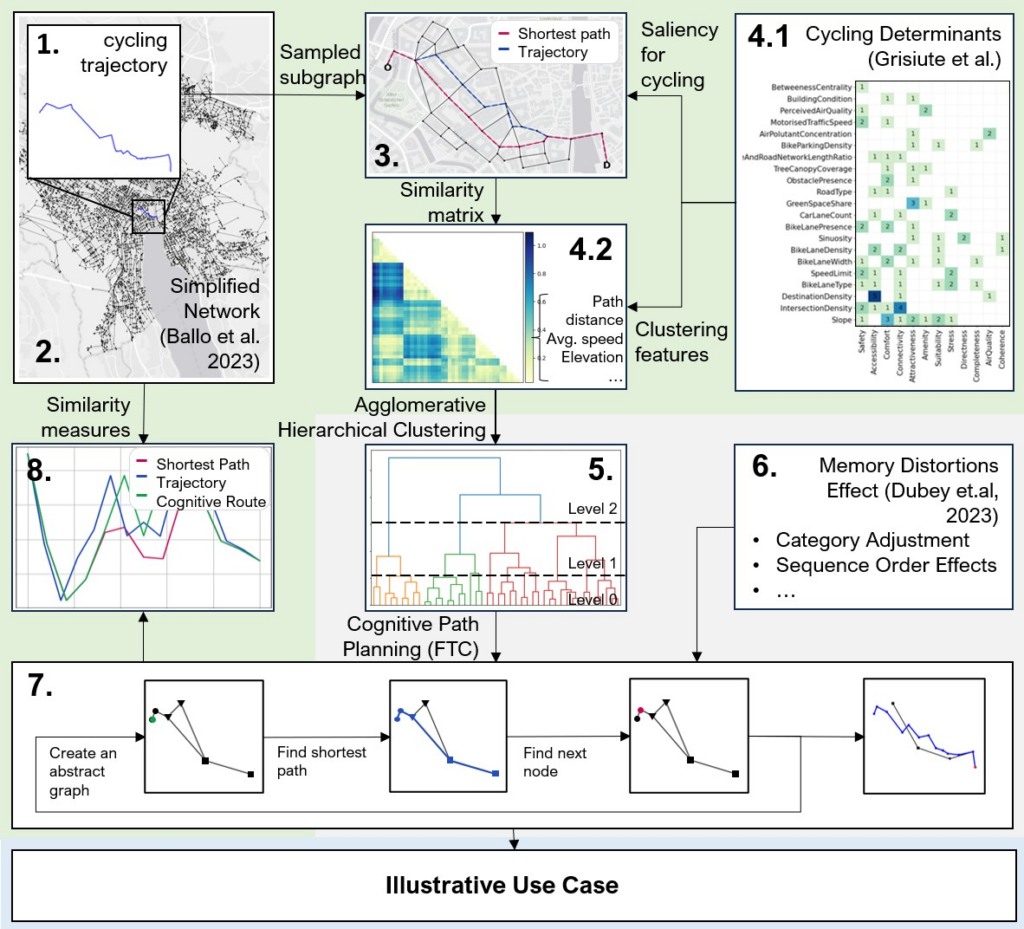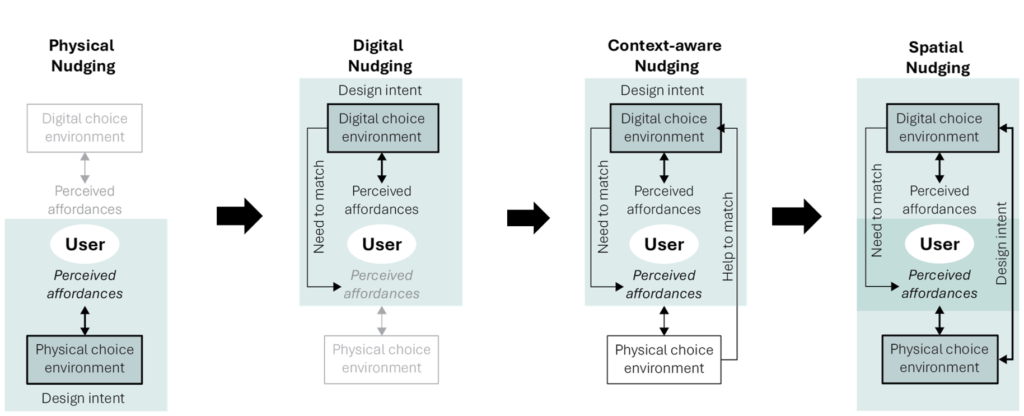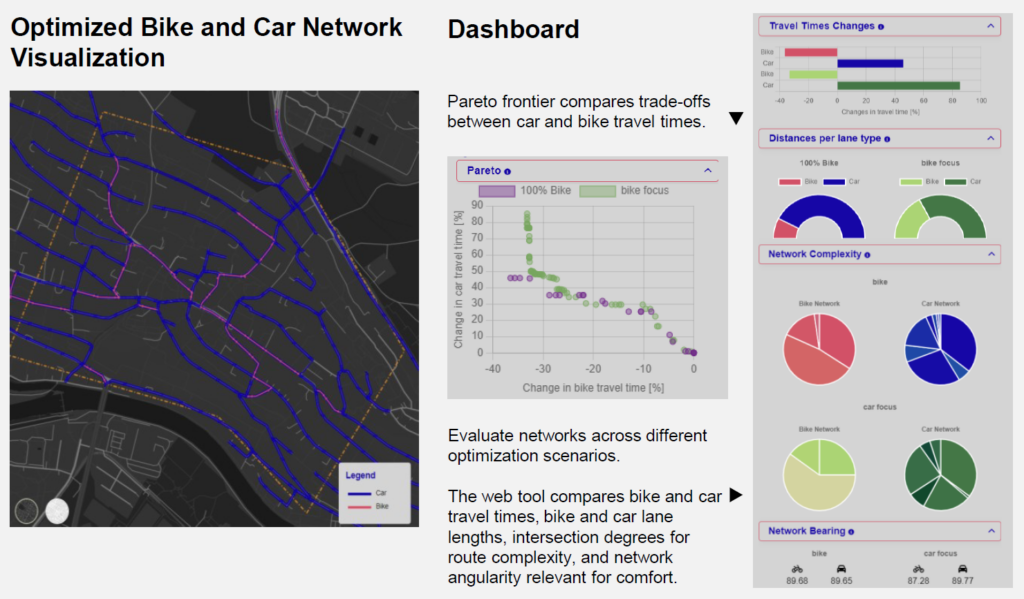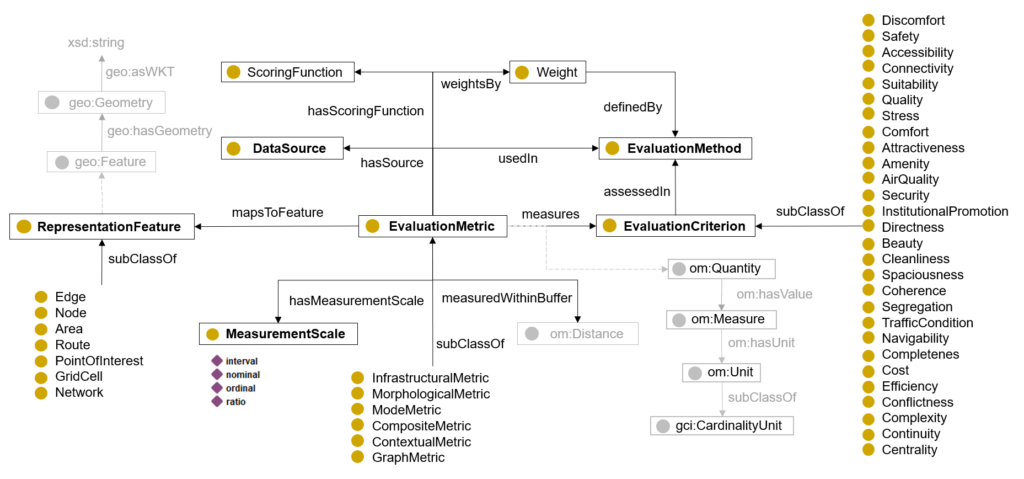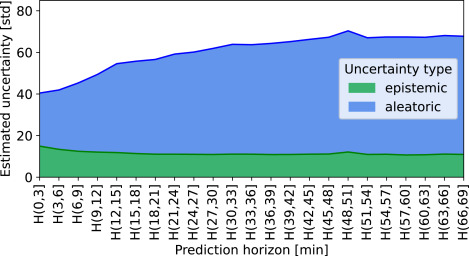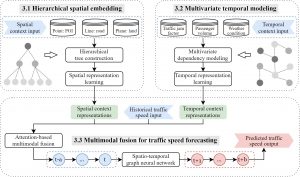A new paper, titled “Spatial Nudging: Converging Persuasive Technologies, Spatial Design, and Behavioral Theories”, was presented at the 16th International Conference on Spatial Information Theory (COSIT 2024).
This paper introduces the Spatial Nudging framework—a theory-driven approach that maps out nudging strategies in the mobility domain, with a focus on cycling. The framework integrates physical and digital interventions to promote sustainable mobility, drawing from behavioral theories such as Nudge Theory and the Theory of Affordances. Additionally, we propose a graph-based workflow that uses cognitive graphs and the Fine-to-Coarse heuristic to model how cyclists perceive their environment. This method generates cognitive routes that align perceived affordances with the physical environment, closely resembling real-world cycling trajectories.
For more details, check out our paper!
